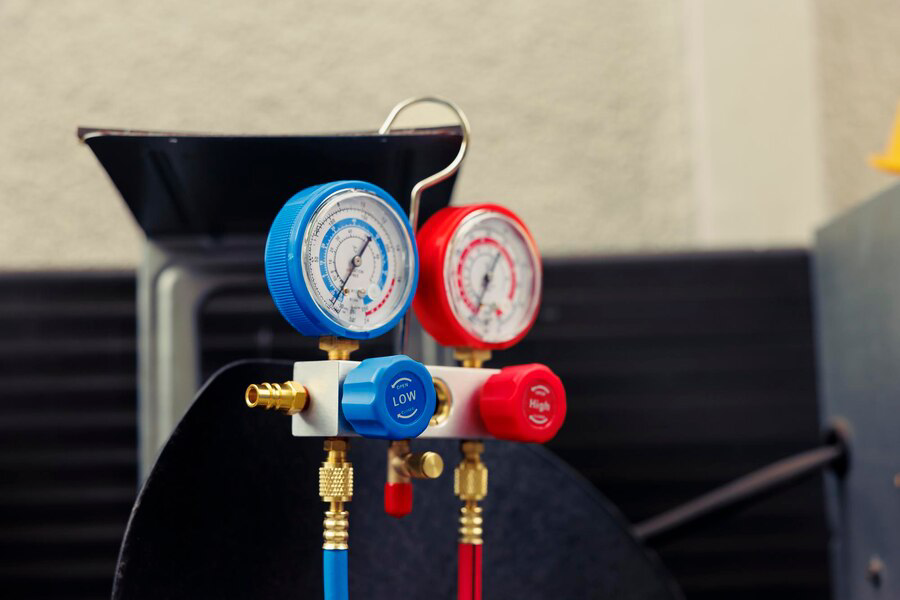In our quest for comfort and convenience, we often overlook the environmental toll of everyday practices, such as heating water for our daily needs. Traditional hot water systems, ubiquitous in households worldwide, come with a significant environmental cost. From the energy-intensive processes of heating water to the emissions released during operation, these systems contribute to greenhouse gas emissions and exacerbate climate change. However, there is hope on the horizon. By embracing innovative technologies and adopting sustainable practices, we can mitigate the environmental impact of hot water systems. From solar water heaters to energy-efficient models and even simple changes in usage habits, there are numerous ways to make a positive change. In this blog post, we will delve deeper into the environmental repercussions of traditional hot water systems and explore actionable steps individuals and communities can take to transition towards a more sustainable future.
The Energy Consumption of Traditional Hot Water Heaters: Understanding the Environmental Impact
Traditional hot water heaters are ubiquitous in households around the world, providing a convenient supply of hot water for various domestic activities. However, the convenience they offer comes at an environmental cost, primarily due to their significant energy consumption. In this article, we delve into the energy usage of traditional hot water heaters, examining the environmental implications and exploring potential solutions for reducing their impact.

- Energy Sources: Traditional hot water heaters typically rely on fossil fuels such as natural gas, propane, or heating oil, or electricity generated from non-renewable sources such as coal or natural gas. These energy sources are finite and contribute to greenhouse gas emissions when burned for heating water. The combustion of fossil fuels releases carbon dioxide (CO2) and other pollutants into the atmosphere, exacerbating climate change and air quality issues.
- Energy Efficiency: One of the key factors contributing to the environmental impact of traditional hot water heaters is their relatively low energy efficiency. Conventional storage tank water heaters, for example, continuously heat water to maintain a set temperature, even when not in use. This constant heating results in energy wastage, particularly during periods of low hot water demand, such as overnight or when occupants are away from home. Older models of hot water heaters may lack adequate insulation, leading to heat loss through the walls of the tank. This means that more energy is required to keep the water at the desired temperature, further increasing energy consumption and associated emissions.
- Peak Demand: Another factor to consider is peak demand, especially in regions where energy usage peaks during certain times of the day. Traditional hot water heaters contribute to these peaks as they draw a significant amount of electricity or gas when heating water, especially during morning and evening hours when households typically require hot water for bathing, cooking, and cleaning.
- Environmental Impact: The environmental impact of traditional hot water heaters is multifaceted. The combustion of fossil fuels releases greenhouse gasses, including CO2, methane (CH4), and nitrous oxide (N2O), which contribute to global warming and climate change. Additionally, the extraction, processing, and transportation of fossil fuels further degrade ecosystems and pollute air and water resources. The energy-intensive manufacturing process of hot water heaters, including the extraction and processing of raw materials, contributes to their overall environmental footprint. From mining metals like steel for tanks to manufacturing components such as heating elements and insulation materials, each stage of production has its own energy and environmental costs.
The Hidden Cost of Hot Water
While hot water is a necessity in modern life, its production often comes with a hidden environmental cost in the form of greenhouse gas emissions. In this article, we delve into the environmental impact of hot water production, focusing on the greenhouse gasses released during the process. By understanding this hidden cost, we can better appreciate the urgency of adopting sustainable alternatives.

The Greenhouse Gas Connection
Hot water production is intrinsically linked to the combustion of fossil fuels, whether it be natural gas, heating oil, or coal, or through the consumption of electricity generated from fossil fuel power plants. The combustion of these fuels releases greenhouse gases such as carbon dioxide (CO2), methane (CH4), and nitrous oxide (N2O) into the atmosphere.
Carbon Dioxide (CO2)
The primary greenhouse gas emitted during the production of hot water is carbon dioxide. When fossil fuels are burned to heat water, CO2 is released as a byproduct of combustion. The continuous use of traditional hot water heaters powered by fossil fuels contributes to the accumulation of CO2 in the atmosphere, leading to global warming and climate change.
Methane (CH4)
While carbon dioxide is the most prevalent greenhouse gas emitted during hot water production, methane is also released, albeit in smaller quantities. Methane is a potent greenhouse gas with a much higher global warming potential than CO2 over shorter time frames. It can be released during the extraction and transportation of natural gas, as well as from leaks in pipelines and storage tanks.
Nitrous Oxide (N2O)
Nitrous oxide is another greenhouse gas associated with hot water production, albeit in smaller amounts compared to CO2 and CH4. It is released during the combustion of fossil fuels and can also result from microbial processes in wastewater treatment systems. Like methane, nitrous oxide has a significant global warming potential and contributes to climate change.
The Environmental Toll
The cumulative impact of greenhouse gas emissions from hot water production extends beyond climate change. These emissions also contribute to air pollution, smog formation, and respiratory illnesses in humans. Furthermore, the extraction, processing, and transportation of fossil fuels for hot water production can have detrimental effects on ecosystems, including habitat destruction and water pollution.
Conclusion
As highlighted through the examination of traditional hot water systems, it is evident that their environmental impact is significant, contributing to energy consumption and carbon emissions. However, by embracing sustainable alternatives and innovative technologies, such as solar water heating systems and energy-efficient models, individuals and businesses like EZI Plumbing in Chain Valley Bay, NSW, Australia, can actively mitigate their environmental footprint while still fulfilling their hot water needs. Embracing these changes not only benefits the environment but also offers long-term cost savings and promotes a greener future for generations to come. For inquiries about adopting eco-friendly hot water solutions, EZI Plumbing can be contacted at +61 448467788.

